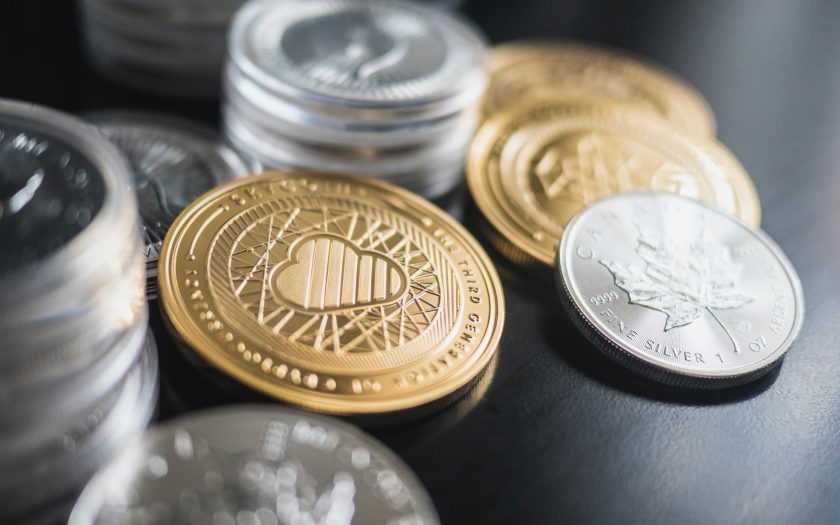
© Protocols And Tokens Pvt. Ltd.
As these increasingly popular digital currencies steadily find their way into the mainstream financial system, a world without cryptocurrencies is quickly becoming an impossibility. Perhaps , the future of cryptocurrency seems to have a shine with all the lives getting attached to it.
Many individuals see cryptos as hazardous and speculative bubbles due to their unprecedented success, with a market worth of $2.24 trillion in just 12 years. Others honestly believe that this will replace fiat currencies in the next few years, disrupt contemporary financial systems, and revolutionize how we interact with money. Furthermore, analysts predict that the future of the cryptocurrency market could triple by 2030.
The growth and advancements of cryptocurrency has been faster than ever yet the future remains a little fuzzy. Moreover, the devastating pandemic lured human beings to try hands onto this budding technology proving that its future could indeed be bright.
The various good and negative variables that surround cryptocurrencies make it difficult to predict how the future of cryptocurrency will evolve in the coming years. We know that cryptos will almost certainly coexist with fiat currency for the time being. The introduction of government-backed digital currencies would place fiat currencies on par with cryptos, perhaps resulting in a trust war.
While CBDCs will be recognised as legal cash in many countries, making transactions easier and facilitating cross-border payments, cryptocurrencies will remain relevant due to decentralization and market attitudes. It is estimated that the market cap of cryptocurrencies could reach $5 to $10 trillion in the next five years.
Also Read: IMF Report Says there are 100 CBDCs as of July 2022
Almost all of the security and transaction challenges that cryptos face today will be overcome as the technology advances and thus pave a way for the future of cryptocurrency. For starters, new blockchains and quantum computing would fundamentally alter how cryptos are purchased, sold, and stored.
We will eventually get to a position where cryptocurrency transactions are faster than e-wallets and credit card transactions. This, together with the success of cryptocurrency experiments performed by a number of prominent corporations and banks, may encourage more businesses to accept bitcoin as a form of payment.
The more widespread cryptocurrencies become, the more difficult it will be to avoid official inspection. There is no certainty that other governments will ban cryptos, as China and others have done, or accept them, as El Salvador has done. We know that more governments will pay attention to cryptocurrencies and will most likely establish regulations to regulate their use. It’s only a matter of time before we know how these will influence cryptos.
Cryptocurrencies that are accepted into the mainstream financial system must meet a number of requirements. They must appear simple on the front so that users can comprehend them and businesses can smoothly integrate them, but they must be complicated on the inside to resist hacker attacks. They must be open to regulation in terms of proper user protections and anti-money laundering activities while still maintaining decentralization and user privacy.
Only a few of today’s digital currencies could ever achieve such a feat. While Bitcoin and Ethereum are now leading the pack in this race, there is no assurance that a completely new coin with superior technology and use cases will not arise and beat them all together.
The primary issues with trading cryptocurrencies, particularly bitcoin, are high transaction fees and long processing times. However, many more innovative blockchains have developed in recent years, promising faster, cheaper, and more secure cryptocurrency transactions. Ethereum blockchain created an ecosystem for the defi revolution, and NFTs to flourish. Following that layer 2 solutions greatly reduce the crypto platform fees and time.
Governments across the world are looking for methods to protect cryptocurrency investors while also discouraging fraudsters. Over-the-top cryptocurrency activities such as stablecoin issuance, crypto taxation, and crypto investment vehicles would be the focus of the legislation.
They are unable to directly impact the in-depth activities that take place within blockchain networks.
This year, numerous organizations from various industries became interested in cryptocurrencies and blockchain and, in some cases, invested in them. The most vocal about their investments is Michael Saylor’s Microstrategy, which has the biggest bitcoin portfolio of all with 130,000 BTC.
Cryptocurrency exchange-traded funds (ETFs) are relatively new digital assets that aim to make investing in cryptocurrencies easier for normal stock investors. The first ETF, the Bitcoin ETF (BITO ETF) was approved by the Securities and Exchange Commission and debuted on the New York Stock Exchange in October 2021.
Following that many companies have filed for crypto ETFs. Many like Bitcoin Loophole, are working towards further developments on ETFs where ETFs store crypto rather than just tracking them.
Due to a lack of faith in the depreciation of fiat currencies, many investors buy and hold crypto as a store of value. Enthusiasts are more concerned with altering today’s financial system, removing central authority from banks, and giving people entire control over their finances. Developers are motivated by the need to progress the future of money and by innovation.
It’s important to remember that Bitcoin took off and grew on the shoulders of early adopters. Their unwavering commitment and hard effort helped propel a seemingly worthless technology to $0.11 and then to over $60,000!
Conclusion
The world has become increasingly virtual, and digital tokens will play a key role. However, there is a very slim probability that cryptocurrencies will totally replace fiat currencies (digital or physical). Instead, the future of cryptocurrency will see a peaceful coexistence with fiat currencies that would allow individuals and businesses to use any type of currency they like for a variety of reasons.
Our decisions will determine whether or not a single or a few cryptocurrencies have become the global means of trade. Only the future can tell!!
© Protocols And Tokens Pvt. Ltd.
 How To Make Huge Profits In A Short Time With Crypto
How To Make Huge Profits In A Short Time With CryptoGet detailed training system that shows an absolute beginner (without any skill) how to make huge profits in a short time with crypto.
 Crypto + NFT Quick Start Course
Crypto + NFT Quick Start CourseThe #1 course for profit in the Crypto & NFT world - You will discover the secrets that 99% of people don’t know yet





